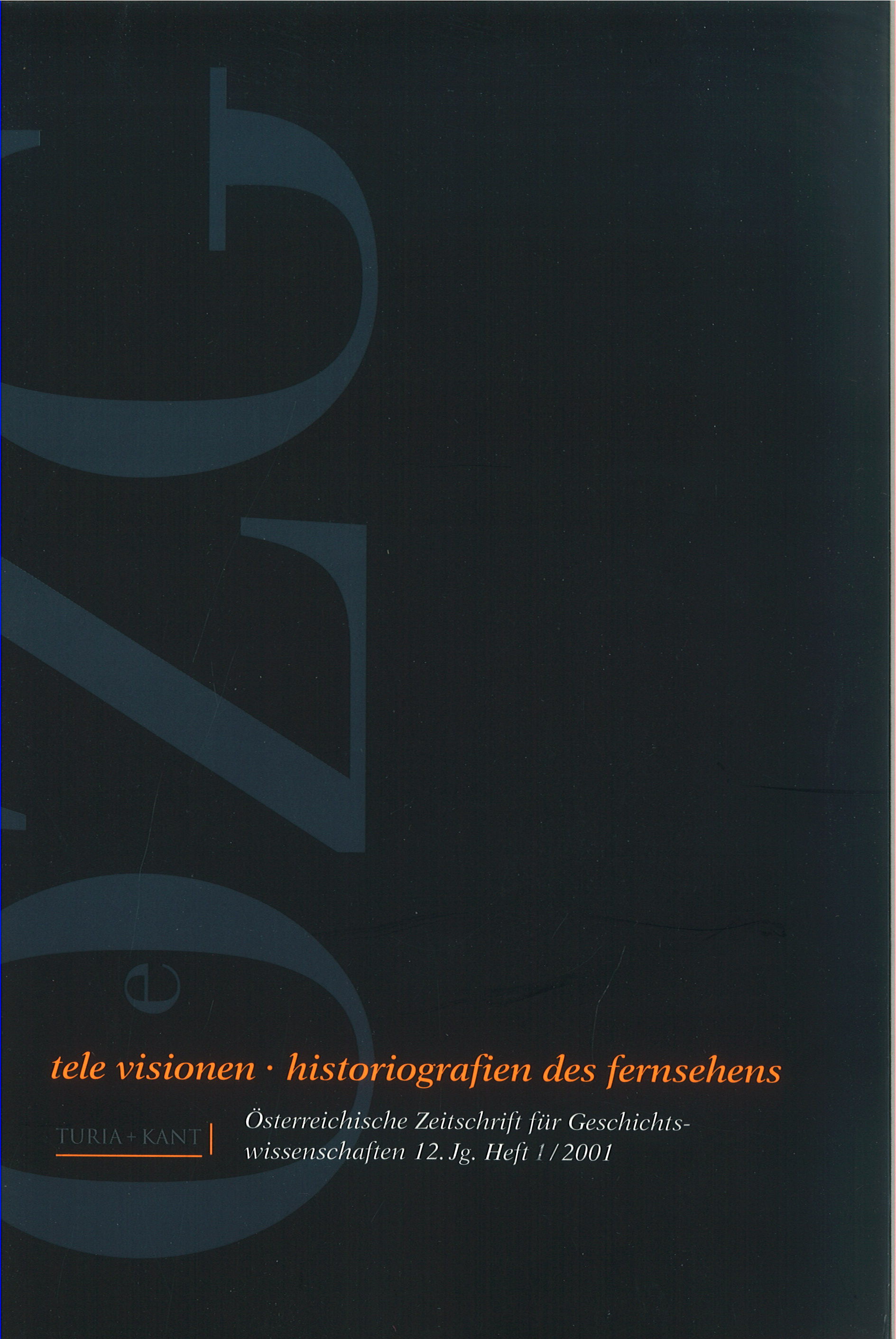Reflections on a Forgotten Past: Early German Television as a History of Absences
Early German Television as a History of Absences
DOI:
https://doi.org/10.25365/oezg-2001-12-4-4Abstract
In March 1935, Germany announced the world's first public, daily television service - a service that lasted more or less unbroken until the end of the war. Despite extensive publicity, despite a fabric of collaborations with allied countries, somehow the events of this nine year episode have largely vanished from popular memory. How might we account for this? And what might the implications be for thinking about our construction of history? This essay takes on the rather vast (and vexed) issue of forgetting through a case study of Fernsehsender Paul Nipkow, arguing that forgetting has patterns and texture, in ehe process trying to give form to that which has slipped away.


